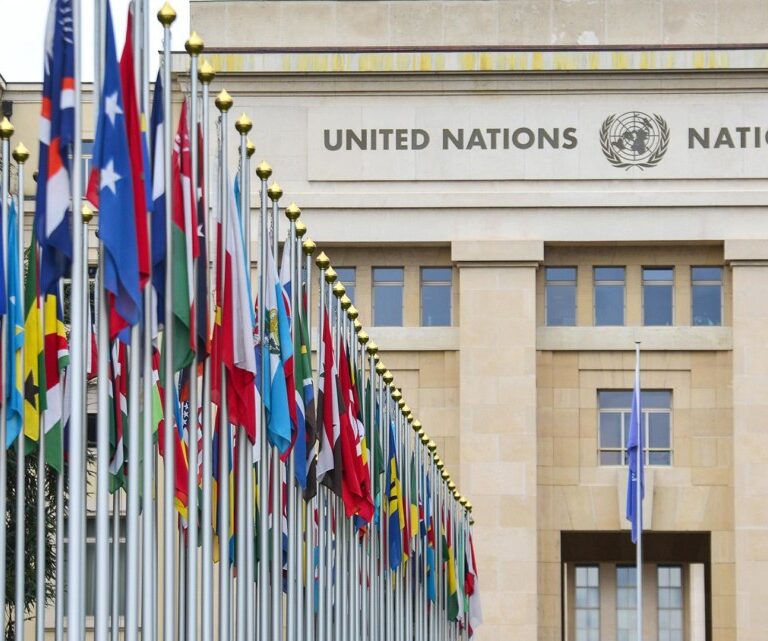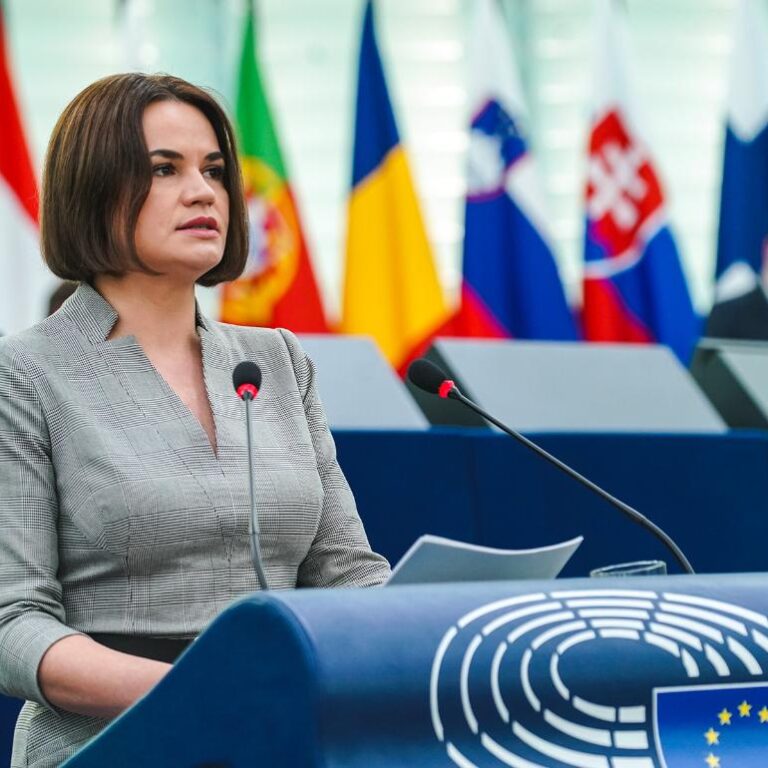As the Constitutional Court of Ukraine reported on March 31, it received a submission from Ukrainain MPs deputies regarding the constitutionality of the Agreement between Ukraine and Russia signed in 2010, regarding the presence of the Black Sea Fleet of Russia on Ukrainian territory.
The constitutional submission emphasizes that this agreement contradicts the principles of ensuring national security and does not comply with the seventh part of Article 17 of the Constitution of Ukraine, according to which the location of foreign military bases in Ukraine is not allowed.
In addition, the MPs of Ukraine point out that there is no legal framework for the conclusion of an international agreement of this content, therefore there are grounds for declaring the Agreement unconstitutional.
The situation was analyzed by the Association’s expert, Professor Borys Babin.
According to the above agreement, ratified by the Law of Ukraine dated April 27, 2010 № 2153-VI, the parties extended the Agreement between Ukraine and the Russia on the status and conditions of the Russia’s Black Sea Fleet on the territory of Ukraine dated May 28, 1997, the Agreement between Ukraine and Russia on the parameters of separation of the Black Sea Fleet dated May 28, 1997 and the Agreement between the governments of Ukraine and Russia on mutual settlements related to the distribution of the Black Sea Fleet and the stay of the Russia’s Black Sea Fleet on the territory of Ukraine dated May 28, 1997.
These three agreements were “extended” by the 2010 agreement “for a period of twenty-five years beginning on May 28, 2017, with subsequent automatic renewals for subsequent five-year periods unless either party notifies the other in writing of their termination no later than one year before the expiry date”.
At the same time, part 3 of Article 25 of the Agreement on the status and conditions of stay of the Black Sea Fleet of 1997 stated that it is concluded for 20 years, counting from the date of its temporary application, and that the validity period of the Agreement will be automatically extended for the next five-year periods, if neither party notifies the other party in writing about the termination of the Agreement no later than one year before its expiration.
In Part 3 of Article 10 of the Agreement on the parameters of the division of the Black Sea Fleet, it was stated that it is valid during the period of validity of the specified Agreement on the status and conditions of stay of the Black Sea Fleet.
Also, part 3 of Article 7 of the Agreement on mutual settlements of 1997 stated that it “is effective until the parties fully fulfill their obligations arising from it”. Also, this act, in articles 1 and 2, indicated that Russia “compensates the Ukrainian Party for the value of the ships, vessels and vessels received from it” and that in the future “the amount of the annual repayment of part of the state debt of Ukraine… is 97.75 million US dollars” and that after the repayment Ukraine’s state debt to Russia is paid by Russia through direct payments.
Thus, the agreements of 1997 established a clear term of validity and the procedure for its extension, established in the basic agreement on the status and conditions of the Black Sea Fleet’s stay, which was to end in 2017 for two agreements, and for the third – after Russia paid the amount for the Black Sea Fleet’s stay in of Ukraine for 2017.
Thus, the 2010 agreement cannot be considered as an agreement on the “extension” of the 1997 agreements and is an independent international agreement that establishes other, different from the 1997 agreements, conditions for the Russian fleet’s stay in Ukraine. This is also confirmed by the norms of Article 2 of the 2010 agreement, according to which “the rent for the stay of the Russia’s Black Sea Fleet on the territory of Ukraine starting from May 28, 2017 consists of payments by Russia to Ukraine in the amount of one hundred million US dollars per year, as well as additional funds that are obtained by reducing the price of up to one hundred US dollars from the date of entry into force of this Agreement from the current contract between Naftogaz OJSC of Ukraine and Gazprom OJSC for each thousand cubic meters of gas supplied to Ukraine”.
These funds were proposed to be calculated “based on the preferential agreed volume of supplies provided for in the mentioned contract, according to the following formula: at a price of three hundred and thirty-three US dollars and above for one thousand cubic meters of gas, the reduction will be one hundred US dollars, at a price below three hundred and thirty-three US dollars, the reduction will be thirty percent of such price”.
It was additionally indicated that “these additional funds are subject to accounting at the end of each calendar year during which the specified reduction is applied, with an increasing amount and are recognized as obligations of Ukraine that are repaid by fulfilling the provisions of Article 1 of this agreement”.
It is noteworthy that the authors of the 2010 agreement, understanding the described situation, referred in its preamble not so much to the 1997 agreement as to the “principle of strategic partnership”, “fixed in the Treaty on Friendship, Cooperation and Partnership between Ukraine and Russia dated May 31, 1997”. and also on Article 1 of the intergovernmental agreement between Ukraine and Russia on free trade dated June 24, 1993.
At the same time, the Treaty, 1997 was terminated by the Law of Ukraine No. 2643-VIII of December 6, 2018. As it was stated in the law, this was done in view of the armed aggression of Russia against Ukraine, which constitutes a significant violation of the Treaty, which is of essential importance for the implementation of its object and goals. Ukraine did this in accordance with the provisions of Article 60 of the Vienna Convention on the Law of International Treaties, Article 24 of the Law of Ukraine “On International Treaties of Ukraine” and in accordance with Article 40 of the same Treaty.
According to this norm, the Treaty was concluded for a period of ten years, and its validity was then automatically extended for subsequent ten-year periods, if neither party notifies the other party of its desire to terminate its validity by written notice at least six months before the end of the next ten-year period.
This is exactly the procedure that was applied by Ukraine after the approval of Law № 2643-VIII, which terminated the Treaty on April 1, 2019. The law separately stated that the termination of the Treaty frees Ukraine from any obligation regarding its implementation and does not affect the rights, obligations or legal position of Ukraine that arose as a result of the implementation of the said Treaty before its termination, in accordance with Article 70 of the Vienna Convention on the Law of International Treaties. It is obvious that this norm covers both the 1997 agreement on the fleet and the 2010 agreement.
Regarding the reference in the 2010 Agreement to Article 1 of the free trade Agreement, 1993, it should be stated that its rules do not apply to fleet issues at all and cover aspects of the non-application of customs duties, taxes and fees that have an equivalent effect on the export or import of goods of Ukraine and Russia, and on withdrawal from the trade regime in accordance with the agreed list of goods, which must be issued with separate documents. The single Protocol, 2001 to this agreement also did not regulate the issue of fleet basing and related operations.
However, in the future, as it was reported by the Ministry of Foreign Affairs of Ukraine in letter № 72/14-612/1-64473 dated August 25, 2022, the 1993 Agreement and the Protocol to it were terminated as of August 29, 2015.
Thus, one can fully agree with the thesis of the current MPs’ constitutional submission that the 2010 agreement is not an agreement on the automatic extension of the 1997 agreements, it was not approved according to the procedure provided for by these agreements and has an obviously different subject of regulation. Therefore, the review of the constitutionality of this agreement can really be carried out separately from the agreements of 1997.
According to the imperative requirement of Part 7 of Article 17 of the Constitution of Ukraine, the location of foreign military bases on the territory of Ukraine is not allowed. Clause 14 of Chapter XV “Transitional Provisions” of the Basic Law of Ukraine stated that the use of existing military bases on the territory of Ukraine for the temporary stay of foreign military formations is possible under the terms of a lease in the manner determined by international treaties of Ukraine ratified by the Verkhovna Rada of Ukraine.
This clause, which was traditionally referred to in terms of agreements on the Black Sea Fleet, was excluded from the Constitution of Ukraine by Law of Ukraine № 2680-VIII of February 7, 2019. In the current constitutional submission, it is stated that this point was determined by “the specifics of the formation of our independent state, in particular the fact that at the time of the approval of the Constitution of Ukraine there was a foreign military base”, namely the base of Russia’s Black Sea Fleet in the Crimea.
The authors of the constitutional submission reasonably determine that, except for the agreements of 1997, all subsequent agreements should be checked for compliance with the Basic Law, in particular taking into account its Article 17, and other norms should be understood in a systemic relationship with it, and the norms of the “Transitional Provisions” had a special subject and temporary application.
As indicated above, since the 2010 agreement is independent, the prolongation mechanisms of the 1997 agreements cannot be applied to it, and it must be separately assessed for its constitutionality.
At least the following should be added to this question.
First, paragraph 14 expired in 2019, and its cancellation was obviously due to the same reasons as the approval of Law № 2643-VIII, namely large-scale Russian aggression. The fact of Russian aggression and occupation of Crimea is indisputable, and it is currently established at the international level not only by a number of resolutions of the UN General Assembly, but also, in particular, by interim decisions of the European Court of Human Rights in 2020 and 2023 in interstate cases on claims of Ukraine against Russia, regarding the Crimea and Eastern Ukraine. This fact also follows from the current order of the International Court of Justice in the case of Russia’s violation of the UN Convention on the Prevention and Punishment of the Crime of Genocide, dated March 16, 2022, which requires Russia to cease military operations in Ukraine.
Secondly, it should be added that the aggressor state, after the occupation of Crimea, unilaterally announced the “termination” of the 2010 agreement in 2014. This announcement and the corresponding internal acts of Russia are null and void, because they are based solely on the Russia’s attempt to annex Crimea, which contradicts both all possible norms of international law and all the above-mentioned agreements of 1997.
At the same time, in 2014, based on these announcements, Russia illegally stopped paying lease payments to Ukraine, provided for in both the 1997 and 2010 agreements. Thus, since the actual termination of lease payments, as the Kremlin has publicly and “officially” declared, Russia has in fact unlawfully and unilaterally terminated the implementation of legal relations for the lease of military bases in Ukraine.
At the same time, the indicated clause 14 of the “Transitional Provisions” of the Constitution of Ukraine indicated that the temporary stay of foreign military formations is possible precisely on the terms of a lease, and precisely in the manner determined by international treaties of Ukraine. The refusal of Russia from the actual legal relationship of the lease thus makes it impossible to apply this clause of the Constitution to any legal relationship regarding the Black Sea Fleet from 2014, without terminating the obligations of Russia for lease payments under the agreements of 1997.
At the same time, the extremely likely recognition by the Constitutional Court of the unconstitutionality of the Agreement, 2010 brings us back to the issue of recovery from Russia, in particular, of rental funds. After all, since 2014, Russia has obviously not fulfilled the provisions of the Agreement on mutual settlements, 1997 in force at that time, which will be in effect, precisely with regard to the debts of Russia, until the Russian Federation fully fulfills its financial obligations for the period of 2014-2017.
At the same time, it should be taken into account that the requirements of the contract between Naftogaz OJSC of Ukraine and Gazprom JSC mentioned in the 2010 Agreement have actually lost their validity due to international arbitration decisions, and therefore the aggressor will not be able to refer to these requirements in the future when collecting debts from him for agreements of 1997.
Thus, the current proceedings in the Constitutional Court are directly related to aspects of the deoccupation and reintegration of Crimea, as a Ukrainian region where the Black Sea Fleet was based according to the 1997 agreements, and therefore our Association will continue monitoring this process.
Sources
- https://ccu.gov.ua/novyna/do-sudu-nadiyshlo-konstytuciyne-podannya-shchodo-vidpovidnosti-konstytuciyi-ukrayiny
- https://delo.ua/politics/ksu-perevirit-konstituciinist-ugodi-pro-rozmishhennya-cornomorskogo-flotu-rf-v-ukrayini-414028/
- https://ccu.gov.ua/sites/default/files/3_125_2023.pdf
- https://zakon.rada.gov.ua/laws/show/2153-17#Text
- https://zakon.rada.gov.ua/laws/show/643_359#Text
- https://zakon.rada.gov.ua/laws/show/643_076#Text
- https://zakon.rada.gov.ua/laws/show/643_075#Text
- https://zakon.rada.gov.ua/laws/show/643_077#Text
- https://zakon.rada.gov.ua/laws/show/643_006#Text
- https://zakon.rada.gov.ua/laws/show/643_009#Text
- https://zakon.rada.gov.ua/laws/show/2643-19#Text
- https://zakon.rada.gov.ua/rada/show/v6447321-22#Text
- https://zakon.rada.gov.ua/rada/show/643_200#Text
- https://zakon.rada.gov.ua/laws/show/254%D0%BA/96-%D0%B2%D1%80/ed19960628#Text
- https://zakon.rada.gov.ua/laws/show/2680-19/ed20190221#n13
- https://www.icj-cij.org/sites/default/files/case-related/182/182-20220316-ORD-01-00-EN.pdf







